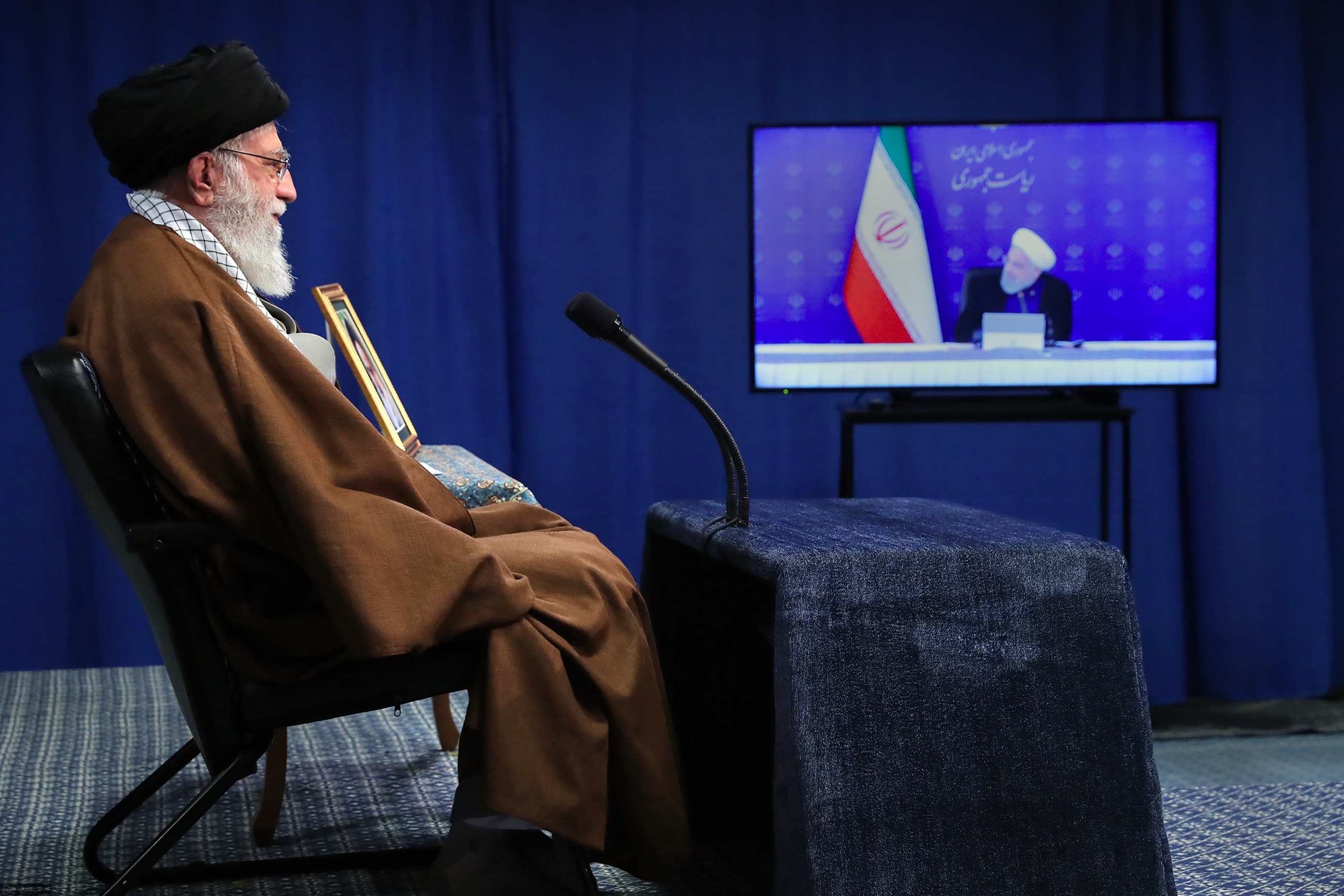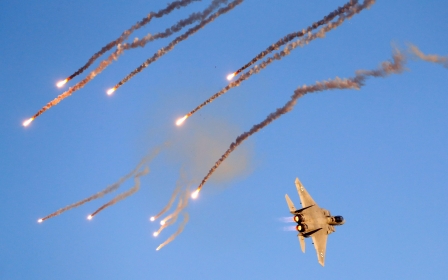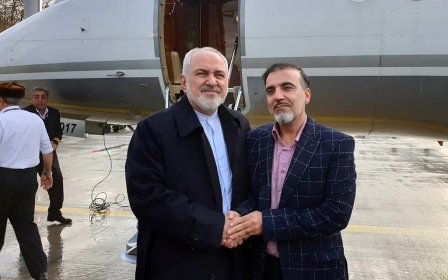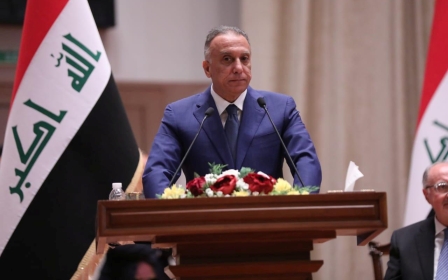Iranian press review: Iran rejects negotiations but promotes prisoner swap with US

No to negotiation, yes to prisoner exchange
Despite offers by Iranian authorities for a total exchange of prisoners with Washington without any preconditions, Tehran has once again stressed that it will not negotiate with the US on any other topic.
A tweet supporting peace with Iran’s enemies by Supreme Leader Ayatollah Ali Khamenei has fuelled speculations about the country’s readiness to begin negotiations with the US, however media close to the Iranian leader quickly rejected the narrative.
On 9 May, which marks the birthday of Imam Hussain, one of the most important figures for Shias, Khamenei praised the imam’s move to make peace with his enemies.
“Imam Hussain (pbuh) acted in a way that the genuine Islam, which couldn’t be continued in the form of a govt, moved on as a great revolutionary movement,” he wrote in a tweet.
New MEE newsletter: Jerusalem Dispatch
Sign up to get the latest insights and analysis on Israel-Palestine, alongside Turkey Unpacked and other MEE newsletters
Farsi media operating outside Iran suggested that the tweet is a signal showing Iran’s willingness to negotiate with the US.
Tasnim news agency, which has close ties to Iran’s Islamic Revolutionary Guard Corps (IRGC), and the country’s official news agency IRNA, immediately rejected such analyses, asserting that Khamenei’s tweet was an analysis of history and not a political signal.
On 12 May, Iranian Foreign Minister Mohammad Javad Zarif also stressed that no negotiations with Washington would take place.
“The US has shown that it is not possible to invest trust in negotiations with them, and almost the whole world has learned that no matter the kind of agreement they have with the US, the Americans will leave the agreement anytime they wish,” Zarif was quoted by ISNA as saying.
Meanwhile, a day after Iranian government spokesman Ali Rabiei expressed Tehran’s readiness for a prisoner swap with the US, Zarif also said that Iran has been waiting for a response from the Americans to Tehran’s offer since 2019.
“Iran is ready to exchange all Iranian prisoners in the US and other countries - who have been jailed due to US pressures - with all American prisoners [in Iran],” the Asia daily quoted Zarif as saying.
Private hospitals lay off nurses amid pandemic
Private hospitals and health care centres in Iranian big cities have been cutting jobs, extending furloughs and reducing working hours of hundreds of nurses, even as the average daily death toll of coronavirus in the country is still over 50 people.
Since mid-March, when the national lockdown was imposed because of the pandemic, the number of operations and non-emergency admissions to private hospitals have sharply dropped in Iran, leading many private hospitals to lay off their nursing staff.
Khalil Alizadeh, the managing director and one of the founders and main shareholders of Atieh Hospital in Tehran, was the first official to reveal the news about the large numbers of job cuts in private hospitals in early April.
In a video, Alizadeh sobbed as he announced that his hospital had no choice but to cut half of its personnel, approximately 500 nurses. However, the video backfired and he was accused by critics of shedding “crocodile tears”.
Critics also asked Alizadeh how can Atieh Hospital construct a new branch, which will be one of the largest hospitals in the Middle East, and at the same time complain about not being able to pay the salaries of 500 nurses for three months.
Meanwhile, the Arman daily reported that the managers of Abu Ali Sina hospital in Shiraz have laid off 30 nurses who had opposed 50 percent cuts to their salaries.
Other private hospitals have also changed the contract of full-time nurses to part-time, according to the daily.
'Hidden hands' thwart smuggling investigation, says MP
Two years after finalising a report on measures enforced and operations carried out by Iran’s anti-smuggling authority, powerful elites have prevented its official release, a legislator told Fars news agency.
Ali Akbar Karimi, Iranian lawmaker and a member of the parliamentarian board that had investigated the effectiveness of activities carried out by the Central Headquarters to Combat Smuggling of Goods and Foreign Currencies (CHCSGFC), said that “hidden and unhidden hands had made [the parliamentarian report] fruitless”.
In March 2017, a panel of Iranian MPs began an investigation into the activities of the anti-smuggling authority, which is run by the office of President Hassan Rouhani.
According to Karimi, in 2015 and 2016, the office was unorganised and did not even have a director. He also added that during those two years a large part of smuggling goods was carried out through official channels and not through illegal border crossing by smugglers.
“In the period of 2015-16, smuggling goods was actually like exporting [and importing] goods,” Karimi told Fars, explaining the role of the officials and customs officers in goods smuggling in Iran.
According to the MPs’ investigation, the value of goods smuggled to and from Iran during that period was over $21.5bn, however the official statistics put the number at $12.5bn.
Slum residents face double threat from earthquake and coronavirus
Last week’s earthquake in Tehran and Damavand has renewed attention on the living conditions of citizens living in suburban slums in unsafe building structures.
The Ettelaat daily, in an editorial published a day after the earthquake, which killed two people and injured 23, warned about the dangers threatening those who live in Tehran’s slums and wrote that any natural disaster in Tehran province will result in “an indescribable humanitarian disaster”.
The daily also reminded how a large number of people living in megacities like Tehran are vulnerable to coronavirus and environmental issues such as air pollution.
Iran has recorded 112,725 confirmed Covid-19 cases and 6,783 deaths.
During the rapid spread of the coronavirus in Iran, officials and non-governmental organisations have warned about the higher rates of infection and social issues caused by unemployment in the shantytowns surrounding the big cities.
According to the numbers provided by experts, over 19 million people, about 20 percent of Iran’s population, live in suburban slums across the country. Tehran, Isfahan, Mashhad and Tabriz have the largest population of slums in Iran.
* Iranian press review is a digest of reports that are not independently verified as accurate by Middle East Eye
Middle East Eye delivers independent and unrivalled coverage and analysis of the Middle East, North Africa and beyond. To learn more about republishing this content and the associated fees, please fill out this form. More about MEE can be found here.




